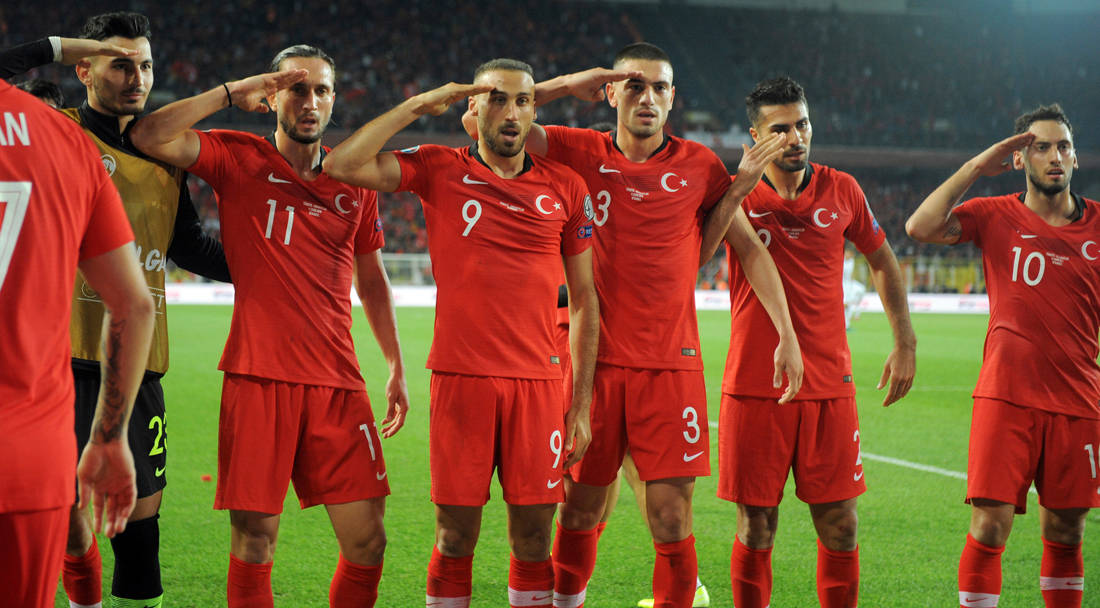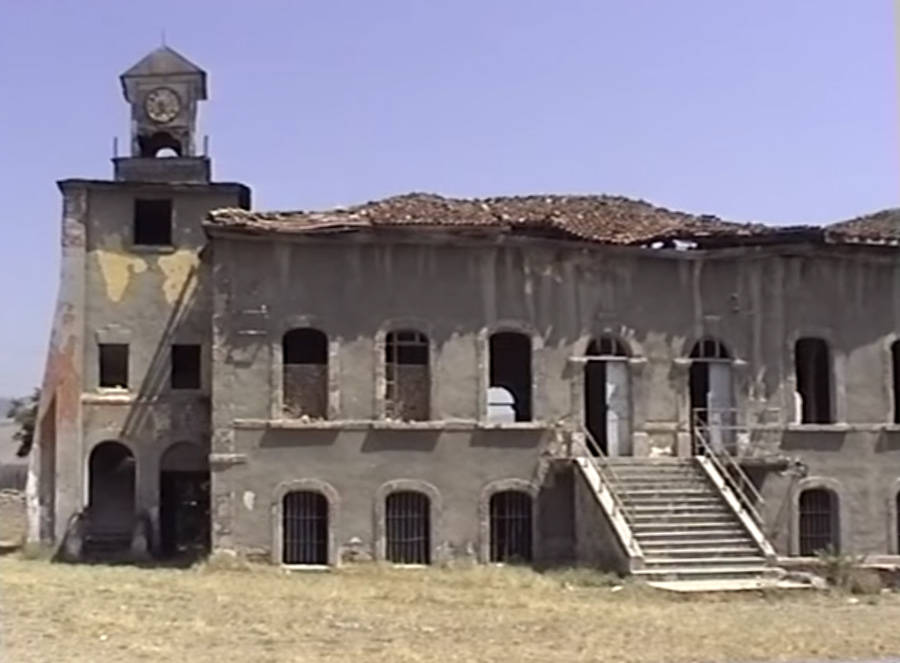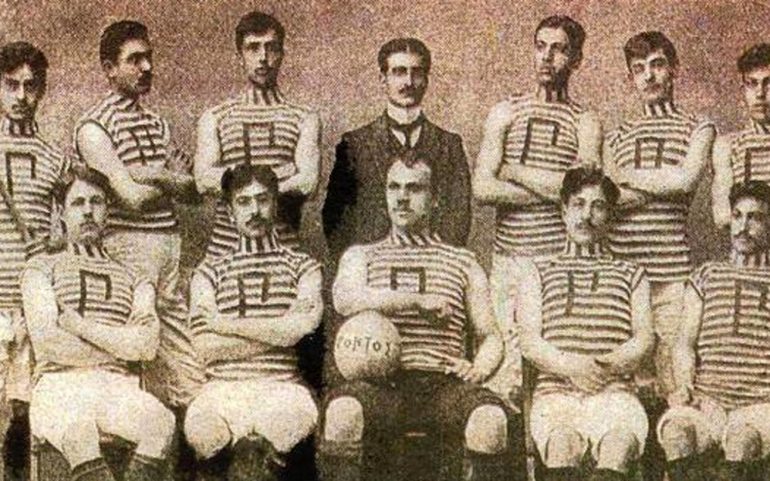There are many examples both past and present, in which various political forces on this planet, and especially some authoritarian regimes, have used sport as a means of propaganda in the society they have ruled, or at least hoped to rule.
There are many boycotts of athletes / countries from great events, the propaganda descriptions of the sports lifestyle that ζωής justifies the respective system, but also the state programs for the administration of anabolic steroids in order to achieve great success. The commercialization of sport is a major cause, but not the only one. And this, because politics often comes to "drill" with -many times- fraudulent purpose and goal. In some cases, in fact, overly abusive.
In today's world, the United States is a recent example of how much politics has entered sports status, but also how much athletes are pursuing politics (as a reactionary action). There, many professional athletes took a clear stand against racism, which the Trump administration "fed" by kneeling in the national anthem. Colin Kapernick was the one who did it, with a tsunami of similar reactions following.
But they are not the only ones going against the power of their country. Many athletes defend - willingly or unwillingly - the decisions of political leaders, expressing their support in public, during sporting events, and even in international events. The example with them is typical Turks footballers, in a game of their national team against Albania, where proceeded to a military salute, in a move in support of their country's war invasion of Syria.
The intervention of the Turkish regime in sports

The players of the Turkish men's national handball team did the same, in the mission of which participated two athletes who took out -until recently- their bread in Greece. The reason for the goalkeeper Yunus Ozmusul who played for AEK, but also for Inter Dourmus Tinkir Ali of Olympiacos. The first is now a thing of the past from the Union, which terminated the cooperation with him, after first proceeding to a three-month termination of his contract, while the Piraeus immediately put their athlete… on the ice and do not count on his services.
Respectively, the issue - but from the other side - was also Costas Sloukas, who in a match of his team, Fenerbahce (to which he belongs for the last six years), against Besiktas, did not touch a banner held by his teammates, with which the Turks wanted to honor Kemal Ataturk, 81 years after his death, which had the message "we remember with nostalgia and respect". The Greek international guard found himself in a difficult position, but it seems that the whole story did not cost him in terms of continuing his own collaboration with the club from Istanbul.
However, if he had made such a move in the past, the issues he would have faced would probably have been much more serious. After all, even now, at a time in human history that is theoretically less savage, and because of how quickly news is spread across the globe, Recep Tayyip Erdogan's regime has serious issues with prominent representatives of Turkish sport, such as Kader and Hakan Sukur, who have even expressed fears for their lives.
The club that στο caught the eye of the Kemalist regime
About 100 years ago, the thread of life was cut short for the members of the Pontos Merzifountas sports club, who were executed in Amasya in 1921, as the club was described as "revolutionary" by the Kemalist Principles. This is one of the most striking examples of how politics has played a tragic role in sports.
Pontos Merzifountas was founded by students and graduates of Anatolia College in 1903. Both students and teachers of the educational institution participated in its administration and its activity concerned the fields of sports, spirit and art. Also, the association organized amateur theatrical performances, created an excellent library, while in 1910 it undertook the publication of the magazine "Point». He also maintained a music department and since 1913 a string orchestra, under the direction of N.S. Sirinidis.
The athletes of the club wore shirts with horizontal white and blue stripes, reminiscent of the Greek flag, with white shorts. The Greek letter "P" was painted on the chest, while the club's seal depicted a ball, an owl and a lyre, representing its triple action in sports, letters and music.
In the last elections held in May 1920, Professor D. Theocharidis was elected president, Ch. Efstathiadis was elected vice-president, An. Pavlidis was secretary, S. Ananiadis was treasurer and Gr. Tsakalov was in charge of the sports department. . Eight months later, all of them were arrested by the Turks as "revolutionaries" and, with the exception of Tsakalov, a Russian citizen, would die in Amasya in the summer and autumn of 1921.
Hanging for the "revolutionaries" of Anatolia

On February 12, 1921, the Turks surrounded Anatolia. According to the website greek-genocide (Greek genocide) and in a tribute to Symeon Ananiadis, Kemalist General Cemil Yahid, accompanied by hundreds of soldiers, entered the college and began searching for weapons and explosives. Finding nothing, they then headed to the office of President George White. There they found a map depicting the historic area of Pontus in ancient and classical times (500 and 200 BC). All Greek books were confiscated, on the grounds that the association was. Revolutionary.
The next morning the leaders of the club were summoned to President White's room and arrested. They were then sent to Amasya to stand trial in the famous Independence Tribunals, which meant an almost certain death sentence, without the prospect of a real and objective trial. Ananiadis, along with hundreds of other Greeks and Armenians, were tortured for months before being hanged. According to testimonies, before being hanged, he managed to shout six words: "I am innocent, ask Dr. White. "
The Turkish authorities forced the educational institution to close permanently that year, but then reopened in 1924, this time in Thessaloniki, at the invitation of Eleftherios Venizelos to George White.
Forever in eternity as victims of an unjustified hatred
The twenty-year activity of the Merzifounta association left a strong memory to the survivors of the Pontian genocide. In December 2008, the Pontian Brotherhood of Adelaide, Australia, together with the Pontian Eagles Brotherhood football club, decided to honor the memory of the victims. They organized a match with opponents of a mixed team of Melbourne, in which they competed with the historic striped blue and white jersey. Then, in May 2009, a match was organized in Kavala between a team of PSAP and veteran football players of the Macedonian city, who played with the colors of the club that had this tragic end.
In addition, in May 2013, a match took place between the national team of Greece in 2004, which lifted the Euro cup, against veterans Pontians footballers, who wore the appearances of Pontus Merzifountas. The struggle was more than special and took place in the context of the Pontian Genocide. In the first half they used the blue and whites and in the replay the oranges. At the stadium of Apollo Pontus (known as Apollo of Kalamaria) were found about 3.500 spectators, who passed the message that the murdered die only when their memory is forgotten.
